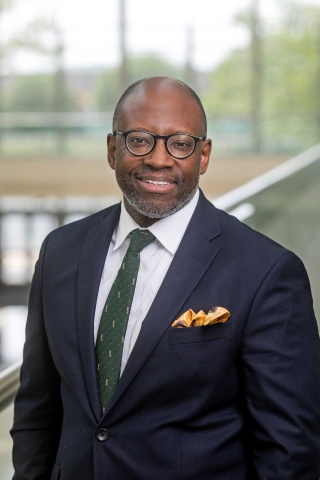As Virginia Tech students limp through the rest of the Spring semester, we are all pondering America's exposed imperfections. Free markets have given Americans an unprecedented level of wealth but prosperity, detached from a commitment to human dignity, does not ensure social harmony. Sadly, the perpetrators in the Virginia Tech and Columbine tragedies shared a deep sense of alienation, isolation, marginalization, and victimization by the mainstream and shared a hatred for the children of affluence. There is mounting evidence that we are faced with a new reality in America: educated, middle-class kids represent a new "at risk" group, as both perpetrators and victims of peer-related violence.
The gravity of both Columbine and the Virginia Tech shooting reveal the pain of America's new at-risk population of middle-class youth. Clinical psychologist Dr. Madeline Levine, author of The Price of Privilege, demonstrates America's new at-risk young people are preteens and teens from affluent, well-educated families. "In spite of their economic and social advantages, they experience among the highest rates of depression, substance abuse, anxiety disorders, somatic complaints, and unhappiness of any group of children in this country," writes Dr. Levine.
In 1997, after five long years of economic struggle, the family of Virginia Tech mass murderer Seung-Hui Cho moved into Centreville, Virginia, a Washington, D.C. suburb. A city with a median household income is $71,232 – part of Fairfax County, a locality with the nation's fifth-highest median household income according to the U.S. Census Bureau. Cho spent his formative years surrounded by children of privilege while his family struggled.
We now know that in Cho's deranged mind these murders were associated, in part, with a profound, narcissistic feeling of alienation and resentment toward an unidentified privileged "you": "You have never felt a single ounce of pain your whole life. ... Your Mercedes weren't enough, you brats. Your golden necklaces weren't enough, you snobs. Your trust fund wasn't enough. ... Those weren't enough to fulfill your hedonistic needs. You had everything."
The resentment of children of privilege has taken on a different shape with Generation Y, those born after 1978. In previous generations the rich, beautiful kids would have been envied and hated from afar. Young people today commit acts of violence against the rich kids as their own self-loathing is acted out. Some might argue that this resentment is encouraged by television shows such as MTV's "Laguna Beach," "Made," and "Maui Fever," where being "hot" and having unlimited resources are paraded as the best possible way to live. Do shows like this stir up inferior feelings and resentment among the non-hot, non-wealthy, non-cool kids – i.e., regular people – because they will never be good enough?
Representing the shooter's family, Sun-Kyung Cho, his Princeton University-educated sister said, "My brother was quiet and reserved, yet struggled to fit in. We never could have envisioned that he was capable of so much violence."
Children of privilege are exhibiting unexpectedly high rates of emotional problems beginning in junior high school and accelerating through adolescence. Depressed, struggling adolescences often get passed over in school if their academic performance remains high. Cho's intellect landed him in honors courses in high school, but his neurosis was overlooked. More than half of all depressed teens have a recurrence of depression within five years showing an elevated risk of depression, poor social skills, and increased risk of suicide attempts and psychiatric hospitalization, according to Levine.
Many parents wrongly assume that high academic performance alone is the measure of emotional, psychological, or spiritual health. Our idea of a successful student is being challenged. Maybe the most successful kids are not the ones merely with good grades but those with a virtuous self-efficacy: the belief that they can successfully make the world a better place regardless of their being "cool," "hot," or materially comfortable.
All such speculation is limited. Perhaps at the end of the day, when all the blaming and theorizing are inconclusive, we are left to face the fact that evil behavior is far deeper than psychoanalysis is able to explain. Garrett Evans, who survived being shot by Cho, said, "An evil spirit was going through that boy. I could feel it."
We are now asking how perpetrators like Cho Seung-Hui "fall through the cracks." Maybe the cracks were never there in the first place, because we failed to realize just how at-risk kids like Cho really are. Have we been looking for the wrong red flags? 'Leaving no child behind' may have less to do with academic and extracurricular performance, and more to do with nurturing emotional, social, psychological, and spiritual health.












